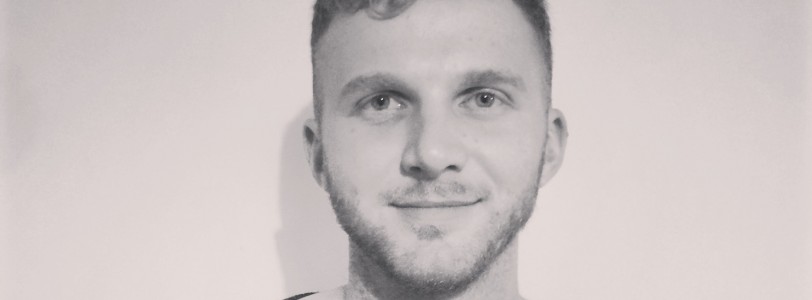Could you first introduce yourself to the reader?
Hey! My name’s Edd, I’m 25, and I’m from Watford.
What attracted you to study journalism and documentary film-making?
I’m a big follower of the news, particularly politics, but I’m also quite a creative person and big into films and documentaries. I knew I wanted to go into journalism, and I had a fair bit of experience with videography, so I thought the course would be a great way to combine the two!
Have you always been interested in the field, or did you originally want to do something else?
Oddly enough, I actually started off in the sciences. I studies biology for my undergrad degree, although I’d realised by my final year that I wasn’t that interested in working in a lab. I was much more attracted to the media side of things. After I graduated, I got an internship in digital media with my old biology department, producing short films about their research, and it progressed from there.
You recently released Going Out: An LGBT nightlife documentary. What was your inspiration for it?
Originally, it wasn’t going to be specifically about LGBT nightlife, but nightlife in general, and why so many clubs and bars around the UK are shutting their doors. I’ve worked in bars and hospitality for years, and this is a subject I feel quite strongly about. But as I began preparing to shoot the film, I decided I needed to narrow the focus a bit, as I only had 20 minutes of screen-time to play with! As a gay guy myself, it seemed logical to focus on how this problem is specifically affecting LGBT venues, and the final concept of the film evolved from that.
There seems to be a dual focus between the history of LGBT nightlife, and the fight for survival that venues are now facing. How did you balance the two?
I wanted to show how LGBT nightlife has been threatened through time, from the AIDS crisis and police persecution in the past, through to economic pressures, redevelopment, licensing issues and behavioural changes today. So by looking at both the history and the present day, you get a sense of how venues have persevered and survived.
What was the process for creating this documentary? What planning did you undertake, and how did you find sources?
I incubated the film in my head for a few months beforehand, developing the idea slowly. We had to pitch it to our supervisors and classmates on the course. When I pitched mine, it was still not specifically about LGBT venues. Once I had pitched it, I started reaching out to venue owners and people in the industry to try and find people who might want to feature in the film. It was sometime during this process that I decided to focus on LGBT nightlife. It actually wasn’t too hard finding sources. Most people in the industry are very willing to talk about these issues, as it affects them all directly.
Having finished it, are there things you would have done differently?
The film looks at both London and Manchester, but I sometimes think I could have made the whole film about just one of those cities, as I had so much material from both, loads of which didn’t make it into the film.
Was there anything you learned during filming that surprised you, either in the process or the content?
As it turns out, when you’re wandering around a club with a camera, everyone thinks you’re the official photographer and poses in front of you – only to realise you’re recording video…that was quite amusing.
Although very fresh to the industry, are there things that have you excited for the future of the medium?
I think it’s an incredibly exciting time for the film and TV industry. The rise of Netflix and other subscription services are revolutionising how film-makers reach audiences and the market is expanding in loads of new and creative ways. There’s probably never been a better time to be making films.
Conversely, is there anything that has you concerned?
When someone creates an AI that can edit a film together, I guess I’m pretty screwed…
What advice would you give to someone who is interested in becoming a documentary film-maker?
Watch lots of documentaries! There really are so many good ones out there, I don’t think you could watch them all in one lifetime. They’re such a good way of getting inspiration. Also – make a film about something you’re really interested in or care about a lot. You’ll have so much more fun making it if you really feel passionately about the subject.
Are there any documentaries you'd recommend? Any personal favourites?
There are so many good ones. I’d personally recommend Paris Is Burning as the obvious, iconic LGBT documentary. Beyond that, I really liked The Act of Killing and Blackfish. And Take Your Pills is a really good one that’s on Netflix right now.
If you could give some advice to 16-year-old Edd, what would it be?
Haha, this is an interesting one. I’d probably tell him to stop pretending to be straight…
Where can people find you online?
You can check out all my creative work on my website www.edwardbains.co.uk. I’m trying to set myself up as a freelance videographer/editor at the moment, so if you’re looking for one, give me a shout!
You can also give me a follow on Instagram and Twitter, my handle on both is @edwardpbains.









0 Comments